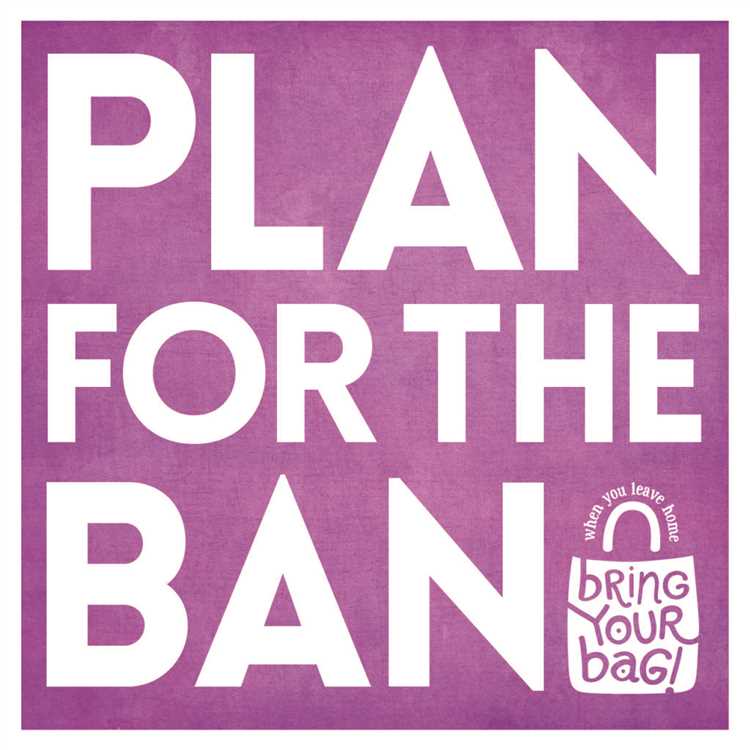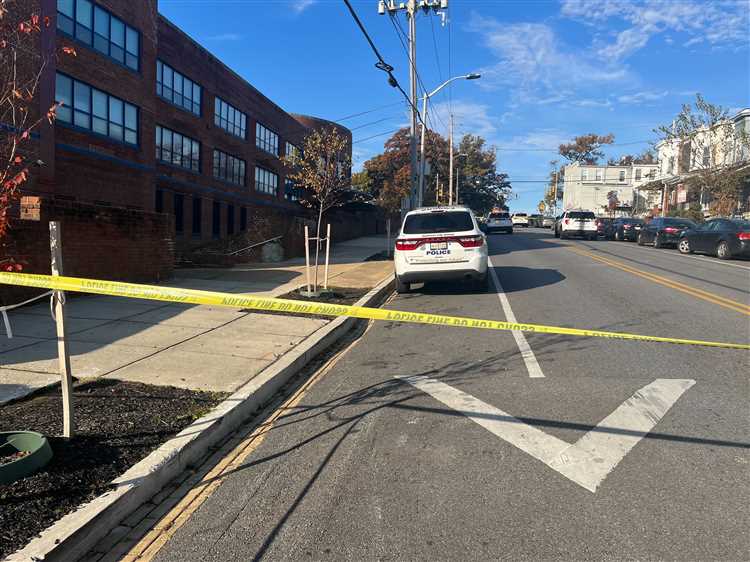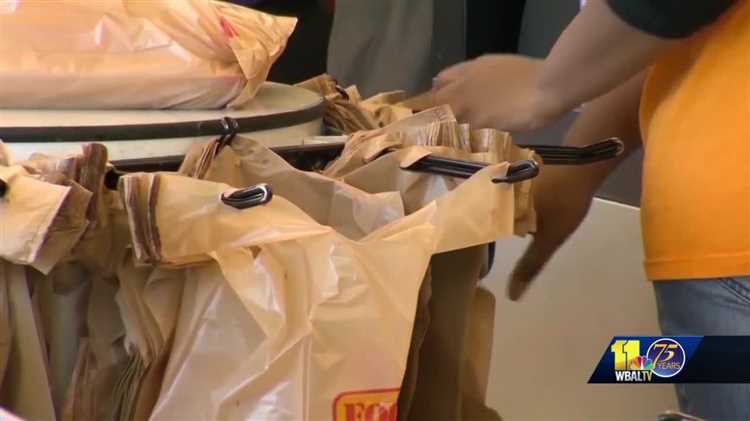
The City of Baltimore has implemented a Bag Tax program aimed at reducing the use of plastic bags in an effort to protect the environment and promote sustainable practices. The Bag Tax is a fee that customers have to pay when purchasing retail goods and using single-use plastic bags for carrying their purchases. This initiative is part of Baltimore’s broader strategy to tackle environmental issues and create a more environmentally-conscious community.
The Bag Tax program was implemented in Baltimore in order to combat the adverse effects that single-use plastic bags have on the environment. These bags contribute to pollution, waste, and harm to wildlife. By charging a small fee for each bag used, the city hopes to incentivize residents to bring their own reusable bags and reduce their reliance on single-use plastic bags.
Why is reducing the use of plastic bags important?
Plastic bags are made from non-renewable resources such as oil and gas, and their production contributes to carbon emissions. Furthermore, plastic bags take hundreds of years to decompose, and during that time, they can cause significant harm to animal life and pollute our waterways. By reducing the use of plastic bags, Baltimore is taking a proactive step towards reducing its carbon footprint and creating a cleaner and healthier environment for its residents.
How does the Bag Tax work?
Under the Bag Tax program, customers are charged a fee for each single-use plastic bag they use when making a purchase. The fee is determined by the retailer and can vary, but it is typically around $0.05 per bag. The revenue generated from the Bag Tax is used to fund environmental initiatives and programs aimed at reducing pollution and promoting sustainability in the city.
What are the benefits of the Bag Tax?
The Bag Tax program has several benefits for the City of Baltimore. By discouraging the use of single-use plastic bags, the city can reduce the amount of plastic waste that ends up in landfills and waterways. This, in turn, helps protect the wildlife and natural habitats in the region. Additionally, the Bag Tax program encourages residents to adopt more sustainable practices, such as using reusable bags, which can have long-term positive effects on the environment.
Conclusion
The City of Baltimore’s Bag Tax program is a significant step towards creating a more environmentally-conscious community. By reducing the use of single-use plastic bags, Baltimore is taking an active role in protecting the environment and promoting sustainability. Through this initiative, the city hopes to inspire other communities to implement similar measures and contribute to a cleaner and healthier planet.
- What is the City of Baltimore Bag Tax?
- Benefits of the City of Baltimore Bag Tax
- Impact of the City of Baltimore Bag Tax
- Background
- Implementation and Impact
- Reasons for Implementing the Bag Tax
- 1. Reduce Plastic Waste
- 2. Protect Wildlife
- 3. Encourage Sustainable Choices
- 4. Generate Revenue
- Impact on the Environment
- Overall, the City of Baltimore Bag Tax has had a positive impact on the environment by reducing plastic waste, decreasing energy consumption, and raising awareness about sustainability.
- Reduction of Plastic Waste
- Impact on Plastic Bag Usage
- Environmental Benefits
- Positive Effects on Wildlife
- Impact on Consumers
- Positive Effects
- Negative Effects
- Change in Shopping Habits
- undefined
- What is the City of Baltimore Bag Tax?
- Why was the City of Baltimore Bag Tax implemented?
- How much is the bag tax in Baltimore?
- What is the purpose of using reusable bags?
What is the City of Baltimore Bag Tax?
The City of Baltimore Bag Tax is a local law that was implemented in October 2014. The law requires all retailers in the city to charge customers a fee for each disposable bag they use at checkout. The purpose of this tax is to reduce the usage of single-use bags and encourage the use of reusable bags, ultimately aiming to minimize waste and protect the environment.
Under this law, all retailers, including grocery stores, pharmacies, convenience stores, and other establishments, are required to charge a fee of $0.05 for each disposable bag. This fee applies to both paper and plastic bags. However, certain types of bags are exempt from the tax, such as bags used for carrying prescription drugs, newspapers, or dry cleaning.
The revenue generated from the bag tax is allocated for various purposes, including funding for programs aimed at reducing litter and promoting recycling initiatives. The tax has been successful in reducing the consumption of disposable bags in the city and raising awareness about the environmental impact of single-use bags.
Benefits of the City of Baltimore Bag Tax
The City of Baltimore Bag Tax has several benefits. Firstly, it helps to reduce the production and usage of single-use bags, which are known to have a negative impact on the environment. By encouraging the use of reusable bags, the tax helps to conserve resources and reduce waste.
Secondly, the revenue generated from the bag tax is used to fund various environmental programs. These initiatives help to address litter issues, improve recycling infrastructure, and promote sustainable practices in the community.
Finally, the bag tax raises awareness among consumers about the need to reduce plastic waste and protect the environment. By implementing the tax, the city aims to change consumer behavior and foster a culture of sustainability and responsibility.
Impact of the City of Baltimore Bag Tax
Since the implementation of the City of Baltimore Bag Tax, there has been a noticeable reduction in the consumption of disposable bags. Many consumers have started to bring their own reusable bags when shopping, leading to a decrease in the demand for single-use bags.
The bag tax has also contributed to a cleaner and more sustainable city. The money raised from the tax has been used to fund initiatives that address litter issues and promote recycling. This has resulted in cleaner streets and a more environmentally conscious community.
The City of Baltimore Bag Tax has inspired other cities across the United States to consider implementing similar measures to reduce plastic waste and promote sustainable practices. It serves as a successful example of how local laws can have a positive impact on the environment and encourage responsible consumer behavior.
Background

The City of Baltimore implemented a bag tax in 2010 as part of an effort to reduce litter and promote sustainable practices. The bag tax ordinance requires retailers in Baltimore City to charge customers a fee for each disposable bag provided at checkout. This includes plastic bags, paper bags, and any other type of disposable bag.
The bag tax was designed to encourage residents to bring their own reusable bags when shopping. By reducing the use of disposable bags, the city aims to reduce the amount of litter in streets, streams, and public spaces, as well as the environmental impact of bag production and disposal.
The bag tax in Baltimore is not unique, as other cities and states across the United States have also implemented similar measures. It is part of a broader movement towards reducing single-use plastic bags and promoting sustainable alternatives.
Implementation and Impact
When implemented in 2010, the bag tax started with a fee of 5 cents per bag. The fee was later increased to 10 cents per bag in 2014. The tax applies to all retailers, including grocery stores, convenience stores, and department stores.
The revenue generated from the bag tax is used by the city to support environmental programs, including litter clean-up initiatives and education campaigns. Additionally, retailers are required to report the number of bags provided and the revenue collected from bag fees to the city.
The bag tax has had a noticeable impact on consumer behavior in Baltimore. Many residents now regularly bring their own reusable bags when shopping, reducing their reliance on disposable bags. The city has also seen a decline in the amount of plastic bag litter found in public spaces.
Overall, the bag tax in Baltimore has been successful in raising awareness about the environmental impact of disposable bags and encouraging sustainable practices among residents. It serves as a model for other cities and states looking to implement similar measures to reduce litter and promote environmental stewardship.
Reasons for Implementing the Bag Tax
The City of Baltimore implemented a bag tax in order to address several key environmental, economic, and public health concerns. The following are some of the primary reasons behind the decision to implement this tax:
1. Reduce Plastic Waste
One of the main objectives of the bag tax is to significantly reduce the amount of plastic waste that ends up in landfills, streets, and waterways. Plastic bags are a major source of pollution and can take hundreds of years to decompose. By discouraging the use of plastic bags, the City aims to promote the use of reusable bags and decrease the negative environmental impact of single-use plastics.
2. Protect Wildlife
Plastic bags pose a significant threat to wildlife, especially marine animals. They can be mistaken for food and ingested, leading to serious health issues and often death. By reducing the use of plastic bags, the bag tax aims to protect wildlife and preserve the natural beauty of Baltimore’s ecosystems.
3. Encourage Sustainable Choices
The bag tax serves as a mechanism to encourage consumers to make more sustainable choices. By making people pause and consider their bag use, the tax prompts individuals to explore alternatives such as reusable bags, which have a lower environmental impact. It also raises awareness about the importance of reducing waste and encourages individuals to adopt sustainable practices in their daily lives.
4. Generate Revenue
Implementing a bag tax provides the City of Baltimore with an additional source of revenue. The funds collected from the tax can be reinvested into environmental initiatives, such as recycling programs or educational campaigns on waste reduction.
In conclusion, the bag tax in Baltimore aims to reduce plastic waste, protect wildlife, encourage sustainable choices, and generate revenue. By implementing this tax, the City hopes to create a cleaner and more sustainable environment for its residents and future generations.
Impact on the Environment
The implementation of the City of Baltimore Bag Tax has had a significant positive impact on the environment. By incentivizing the use of reusable bags and discouraging the use of single-use plastic bags, the tax has helped to reduce the amount of plastic waste in the city.
Plastic bags are a major source of pollution, as they take hundreds of years to break down, often ending up in waterways and harming marine life. By reducing the use of these bags, the tax has helped to decrease the amount of plastic pollution in Baltimore’s rivers and streams.
In addition to reducing plastic waste, the bag tax has also led to a decrease in energy consumption and greenhouse gas emissions. The production of single-use plastic bags requires significant amounts of energy and contributes to the emission of greenhouse gases. By encouraging the use of reusable bags, the tax has helped to reduce the demand for these environmentally harmful products.
Furthermore, the implementation of the bag tax has also raised awareness about the importance of sustainable practices and has encouraged residents to adopt more eco-friendly behaviors. Many individuals have made the switch to using reusable bags not only to avoid the tax but also to minimize their environmental impact.
Overall, the City of Baltimore Bag Tax has had a positive impact on the environment by reducing plastic waste, decreasing energy consumption, and raising awareness about sustainability.
Reduction of Plastic Waste
One of the primary goals of the City of Baltimore Bag Tax is the reduction of plastic waste. By implementing a tax on plastic bags, the city aims to discourage their use and promote the adoption of more sustainable alternatives.
Impact on Plastic Bag Usage
Since the implementation of the bag tax, there has been a significant decrease in the use of plastic bags in Baltimore. Prior to the tax, it was estimated that the city used over 1 billion plastic bags per year. However, after the tax was introduced, the number dropped by approximately 80%, with residents opting for reusable bags or other alternatives when shopping.
The bag tax has also led to a change in consumer behavior. Many residents have become more conscious of their plastic consumption and have made a conscious effort to reduce the amount of plastic waste they generate. This has resulted in a shift towards more sustainable habits, such as using reusable bags or opting for paper bags instead.
Environmental Benefits
The reduction in plastic bag usage has had a positive impact on the environment in Baltimore. Plastic bags are a major source of litter and can end up in waterways, causing harm to marine life. By reducing the use of plastic bags, the city has significantly reduced the amount of plastic waste that ends up in landfills and ecosystems.
In addition to reducing litter, the decreased use of plastic bags has also led to a decrease in the production of single-use plastic. This helps to conserve natural resources and reduce the carbon footprint associated with the manufacturing and disposal of plastic bags.
| Benefits of the Bag Tax | Reduction in plastic bag usage |
|---|---|
| Decreased plastic waste in landfills and ecosystems | Shift towards more sustainable habits |
| Positive impact on marine life and waterways | Conservation of natural resources |
| Reduction in carbon footprint |
The City of Baltimore Bag Tax has proven to be an effective measure in reducing plastic waste and promoting more sustainable habits. Through its implementation, the city has made significant strides towards creating a cleaner and greener environment for its residents.
Positive Effects on Wildlife

Implementing the Baltimore Bag Tax has had several positive effects on wildlife in the city. The tax has led to a significant reduction in the use of single-use plastic bags, which are a major source of pollution and harm to wildlife.
By discouraging the use of plastic bags, the tax has helped to reduce the number of bags ending up in the environment, such as water bodies and natural habitats. This, in turn, has led to a decrease in the risk of entanglement and ingestion for many animals. Birds, marine life, and land animals are all affected by plastic bag pollution, but with the bag tax, their exposure to this danger has been significantly reduced.
The tax has also prompted an increase in the use of reusable bags, which are more durable and less likely to end up as litter. Reusable bags have a much lower impact on wildlife compared to single-use plastic bags. They do not pose the same entanglement and ingestion risks and are less likely to be mistaken for food by animals.
Furthermore, the reduction in plastic bag pollution has had indirect positive effects on wildlife habitats. The tax has helped to improve the cleanliness of parks, rivers, and other natural areas, which are important habitats for many species. Cleaner environments contribute to the overall health and well-being of wildlife populations.
| Positive Effects on Wildlife |
|---|
| Reduction in plastic bag pollution |
| Decreased risk of entanglement and ingestion |
| Increase in use of reusable bags |
| Improved cleanliness of wildlife habitats |
Impact on Consumers

The implementation of the bag tax in the City of Baltimore has had a significant impact on consumers. While the main goal of the tax is to reduce waste and promote environmental sustainability, consumers have also experienced both positive and negative effects.
Positive Effects
One of the key positive effects of the bag tax is the reduction in plastic bag usage. By imposing a fee on each bag, consumers have been incentivized to bring their own reusable bags or opt for alternative options such as paper bags. This has led to a decrease in the amount of plastic bags being used and subsequently discarded, which has a direct positive impact on the environment.
In addition to reducing plastic bag usage, the bag tax has also raised awareness among consumers about the importance of sustainable practices. Many consumers have become more conscious of their consumption habits and have actively made changes to reduce their plastic waste. This shift in consumer behavior is a significant step towards creating a more environmentally conscious community.
Negative Effects
While the bag tax has undoubtedly helped in reducing waste, it has also posed some challenges for consumers. One of the main concerns is the financial burden it places on low-income individuals and families who may already be struggling to make ends meet. The additional cost of purchasing new bags or paying the bag tax can have a significant impact on their budgets.
Another potential negative effect is the inconvenience caused by not having access to plastic bags when needed. When consumers are caught without their own bags, they may be forced to pay the bag tax or carry their items without a bag, which can be inconvenient and potentially unhygienic.
| Positive Effects | Negative Effects |
|---|---|
| Reduction in plastic bag usage | Financial burden on low-income consumers |
| Raised awareness of sustainability | Inconvenience when access to plastic bags is limited |
Change in Shopping Habits
Since the implementation of the bag tax in Baltimore, there has been a noticeable change in shopping habits among residents and businesses in the city. Many shoppers have started to bring reusable bags when they go grocery shopping or run errands, in order to avoid paying the bag tax.
This change in shopping habits has had several positive impacts on the environment. The use of reusable bags helps to reduce the consumption of single-use plastic bags, which are known to be a major source of pollution. By using reusable bags, residents of Baltimore are contributing to the reduction of plastic waste, and helping to protect the city’s natural resources.
In addition to the environmental benefits, the change in shopping habits has also had an economic impact. With more residents using reusable bags, businesses in Baltimore have seen a decrease in the cost of providing plastic bags to customers. This cost reduction has allowed businesses to allocate their resources towards other areas, such as improving customer service or expanding their product offerings.
Furthermore, the change in shopping habits has encouraged businesses to become more eco-friendly. Many stores in Baltimore now offer reusable bags for sale, providing customers with a convenient and sustainable alternative to plastic bags. This shift towards eco-friendly practices has not only improved the reputation of businesses, but also attracted environmentally conscious customers.
| Environmental Benefits | Economic Impact | Encouraging Eco-Friendly Practices |
|---|---|---|
| Reduces consumption of single-use plastic bags | Decrease in the cost of providing plastic bags | Stores offering reusable bags for sale |
| Reduces plastic waste and pollution | Resource allocation towards other areas | Improves reputation and attracts eco-conscious customers |
undefined
What is the City of Baltimore Bag Tax?
The City of Baltimore Bag Tax is a law that requires retailers to charge customers a fee for each disposable carryout bag provided at the time of checkout.
Why was the City of Baltimore Bag Tax implemented?
The City of Baltimore Bag Tax was implemented to reduce litter, protect the environment, and encourage the use of reusable bags.
How much is the bag tax in Baltimore?
The bag tax in Baltimore is $0.05 per bag.
What is the purpose of using reusable bags?
The purpose of using reusable bags is to reduce waste, protect marine life, conserve natural resources, and reduce greenhouse gas emissions.